“Blessed is the nation that doesn’t need heroes" Goethe. “Hero-worship is strongest where there is least regard for human freedom.” Herbert Spencer. "My 80% friend isn't my 20% enemy" Ronald Reagan.
Search This Blog
Monday 13 September 2021
Tuesday 24 August 2021
Monday 16 August 2021
Monday 9 August 2021
Thursday 15 July 2021
Monday 12 July 2021
Thursday 17 June 2021
Thursday 3 June 2021
Saturday 8 May 2021
Thursday 22 April 2021
The European Super League is the perfect metaphor for global capitalism
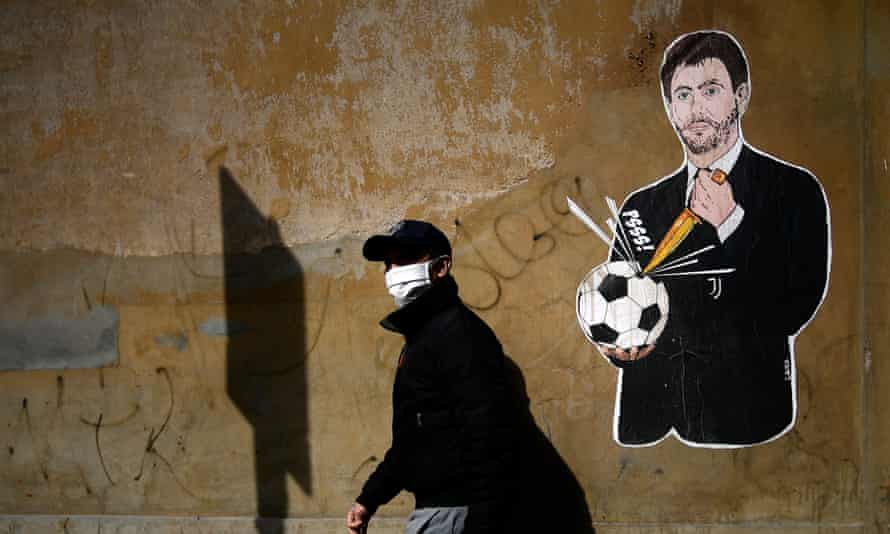 ‘The organisers of the ESL have taken textbook free-market capitalism and turned it on its head.’ Graffiti showing the Juventus president, Andrea Agnelli, near the headquarters of the Italian Football Federation in Rome. Photograph: Filippo Monteforte/AFP/Getty Images
‘The organisers of the ESL have taken textbook free-market capitalism and turned it on its head.’ Graffiti showing the Juventus president, Andrea Agnelli, near the headquarters of the Italian Football Federation in Rome. Photograph: Filippo Monteforte/AFP/Getty ImagesBack in the days of the Soviet Union, it was common to hear people on the left criticise the Kremlin for pursuing the wrong kind of socialism. There was nothing wrong with the theory, they said, rather the warped form of it conducted behind the iron curtain.
The same argument has surfaced this week amid the furious response to the now-aborted plans to form a European Super League for 20 football clubs, only this time from the right. Free-market purists say they hate the idea because it is the wrong form of capitalism.
They are both right and wrong about that. Free-market capitalism is supposed to work through competition, which means no barriers to entry for new, innovative products. In football’s case, that would be a go-ahead small club with a manager trying radical new training methods and fielding a crop of players it had nurtured itself or invested in through the transfer market. The league-winning Derby County and Nottingham Forest teams developed by Brian Clough in the 1970s would be an example of this.
Supporters of free-market capitalism say that the system can tolerate inequality provided there is the opportunity to better yourself. They are opposed to cartels and firms that use their market power to protect themselves from smaller and nimbler rivals. Nor do they like rentier capitalism, which is where people can make large returns from assets they happen to own but without doing anything themselves.
The organisers of the ESL have taken textbook free-market capitalism and turned it on its head. Having 15 of the 20 places guaranteed for the founder members represents a colossal barrier to entry and clearly stifles competition. There is not much chance of “creative destruction” if an elite group of clubs can entrench their position by trousering the bulk of the TV receipts that their matches will generate. Owners of the clubs are classic rentier capitalists.
Where the free-market critics of the ESL are wrong is in thinking the ESL is some sort of aberration, a one-off deviation from established practice, rather than a metaphor for what global capitalism has become: an edifice built on piles of debt where the owners of businesses say they love competition but do everything they can to avoid it. Just as the top European clubs have feeder teams that they can exploit for new talent, so the US tech giants have been busy buying up anything that looks like providing competition. It is why Google has bought a slew of rival online advertising vendors and why Facebook bought Instagram and WhatsApp.
For those who want to understand how the economics of football have changed, a good starting point is The Glory Game, a book Hunter Davies wrote about his life behind the scenes with Tottenham Hotspur, one of the wannabe members of the ESL, in the 1971-72 season. (Full disclosure: I am a Spurs season ticket holder.)
Davies’s book devotes a chapter to the directors of Spurs in the early 1970s, who were all lifelong supporters of the club and who received no payment for their services. They lived in Enfield, not in the Bahamas, which is where the current owner, Joe Lewis, resides as a tax exile. These were not radical men. They could not conceive of there ever being women on the board; they opposed advertising inside the ground and were only just coming round to the idea of a club shop to sell official Spurs merchandise. They were conservative in all senses of the word.
In the intervening half century, the men who made their money out of nuts and bolts and waste paper firms in north London have been replaced by oligarchs and hedge funds. TV, barely mentioned in the Glory Game, has arrived with its billions of pounds in revenue. Facilities have improved and the players are fitter, stronger and much better paid than those of the early 1970s. In very few sectors of modern Britain can it be said that the workers receive the full fruits of their labours: the Premier League is one of them.
Even so, the model is not really working and would have worked even less well had the ESL come about. And it goes a lot deeper than greed, something that can hardly be said to be new to football.
No question, greed is part of the story, because for some clubs the prospect of sharing an initial €3.5bn (£3bn) pot of money was just too tempting given their debts, but there was also a problem with the product on offer.
Some of the competitive verve has already been sucked out of football thanks to the concentration of wealth. In the 1970s, there was far more chance of a less prosperous club having their moment of glory: not only did Derby and Forest win the league, but Sunderland, Southampton and Ipswich won the FA Cup. Fans can accept the despair of defeat if they can occasionally hope for the thrill of victory, but the ESL was essentially a way for an elite to insulate itself against the risk of failure.
By presenting their half-baked idea in the way they did, the ESL clubs committed one of capitalism’s cardinal sins: they damaged their own brand. Companies – especially those that rely on loyalty to their product – do that at their peril, not least because it forces politicians to respond. Supporters have power and so do governments, if they choose to exercise it.
The ESL has demonstrated that global capitalism operates on the basis of rigged markets not free markets, and those running the show are only interested in entrenching existing inequalities. It was a truly bad idea, but by providing a lesson in economics to millions of fans it may have performed a public service.
Sunday 4 April 2021
Monday 22 February 2021
Monday 11 January 2021
Monday 28 December 2020
Britain out of the EU: a treasure island for rentiers
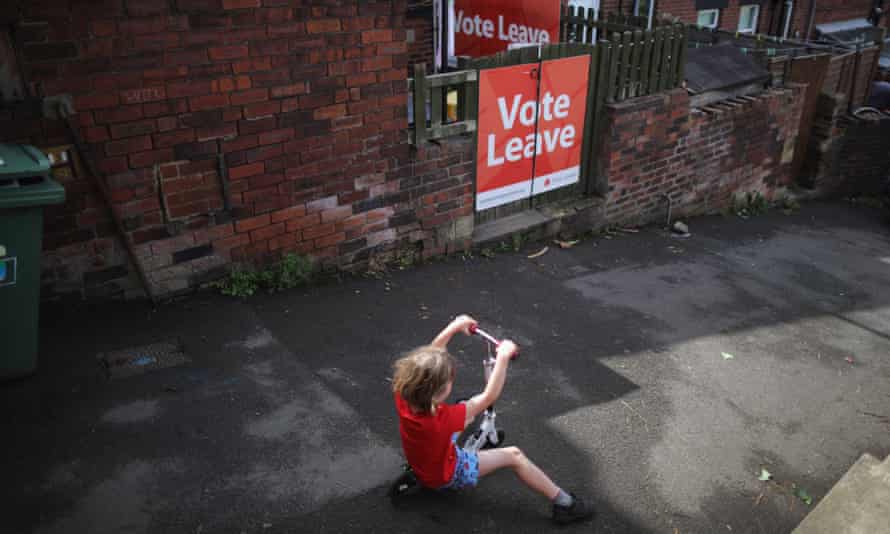
When the UK entered the coronavirus age in March, state resources and collective commitment were mobilised on a scale not seen since the second world war. Decades ago, Britain had revealed itself, thanks in part to being able to marshal the industrial might of the empire, to be a formidable world power. Its economy was energised with breakthroughs in radar, atomic power and medicine.
Although the story of the pandemic has not yet ended, there appears to be no such transformation in sight under Boris Johnson. Rather depressingly, familiar trends of greed, incompetence and cronyism are reasserting themselves. This is bad news for an economy where there has been a collapse of socially useful innovation. Britain’s lack of hi-tech manufacturing capabilities, notably in medical diagnostic testing, was cruelly exposed by the pandemic.
This country has become more of a procurer than a producer of technology. But it is a remarkably inefficient one – despite an extraordinarily high percentage of lawyers and accountants in the working population. Connections seem to matter more than inventions. How else to explain why, in the desperate scramble to procure personal protective equipment, ventilators and coronavirus tests, billions of pounds of contracts have gone to companies either run by friends or supporters – even neighbours – of Conservative politicians, or with no prior expertise.
History is not short of examples where political insiders were successful in extracting virtually all the surplus that the economy created. Such influential interests moulded politics to enlarge their share of the pie. Greed was limited only by the need to let the producers survive. The shock of war, revolution, famine or plague provides an opportunity to fix a broken society. But if, post-pandemic, UK politicians care less about reform than the retention of power, they will fail to restrain the grasping enrichment that undermines democracy itself.
Windfall profits
Perhaps the most penetrating X-ray of this phenomenon today is by Brett Christophers in his book Rentier Capitalism. The academic makes the case that Britain has become a treasure island for those seeking excess profits from state-sanctioned control of natural resources, property, financial assets and intellectual property. Rent, paid by renters to rentiers, is tied to the ownership or control of such assets, made scarce under conditions of limited or no competition.
Mr Christophers says that the first sign of this new order was when Britain struck black gold in the North Sea. He writes that MPs on the public accounts committee noted with incredulity in 1972 that “the first huge areas of the sea were leased to the companies as generously as though Britain were a gullible Sheikhdom”. After that, public assets were sold off cheaply. The private sector ended up controlling lightly regulated monopolies in gas, water and electric supply, and public transport and telecoms. Customers lost out, overpaying for poor service. In a rentier’s paradise, windfall profits abound. Brazenly occupying the lowest moral ground was essential, as the housebuilder Persimmon proved by earning supersized state-backed help-to-buy profits long enough to hand out a £75m bonus to its boss.
The banks, which took this country to the brink of collapse a decade ago, are at the heart of a rentier state. France, Germany, Japan, the US all have banking sectors smaller than the UK. While banks earning rents have flourished, the households paying them – either directly as financial consumers, or indirectly as taxpayers of a debtor state or customers of debtor firms – have floundered.
The anger that such spivvery engenders is diffused politically by making voters complicit in the theft. The sell-off of council homes, says Mr Christophers, was a privatisation that gave many of those perhaps most inclined to kick against Thatcherism a personal stake in the project. Culturally, Brexit plays the same sort of role as the right to buy, insulating poorer leave voters from the idea that they will suffer from the resulting policies.
The prime minister understands that Covid can change Britain, but lacks modernising policies. He extols the virtues of free competition – both for itself and because such freedom, he reasons, will somehow liberate the spirit fluttering within a pre-Brexit Britain caged by coronavirus. He is no doubt betting that the disruption of leaving the EU will be lost in the roar of an economy taking off as an inoculated population returns to offices and shops.
Weakened regulations
The gap between rich and poor in the UK is at least as high today, academics calculate, as it was just before the start of the second world war. This is largely because the British state that once mediated the struggle between labour and capital has been taken over by rentiers. Weakening regulations, reducing the importance of fiscal policy and shredding social protections has corroded liberal democracy in which an increasingly influential wealthy few have been enjoying a free run. Ultimately, rentiers want to increase what the economist Michał Kalecki called the “degree of monopoly” in an economy. This allows them to limit the ability of workers, consumers and regulators to influence the markup of selling prices over costs and to defend the share of wages in output.
The EU says its labour, environment and customer protections are a floor, not a ceiling, and that they can’t be traded away for frictionless market access. If we had stayed in the club, our ability to concentrate profits for monopolists would have been stymied in future trade deals negotiated by Brussels and open to MEPs’ scrutiny. Outside the EU, Mr Johnson can barter away such regulations – without parliamentary oversight – and scrap safeguards in new technology for higher monopoly profits. Karl Marx wrote in The Eighteenth Brumaire of Louis Bonaparte in 1852 that “the Tories in England long fancied that they were in raptures about royalty, the church and the beauties of the ancient constitution, until a time of trial tore from them the confession that they were only in raptures about rent”. His assessment of early 19th-century Tories applies with unerring accuracy to today’s Conservatives.
Mr Christophers’ insight is that the Tories under Mr Johnson are a party of – and for – rentiers, much more than the interests of productive capital. This explains why, after 2016, the Tory party embraced Brexit and shrugged off productive capital’s concerns about leaving the EU. It will be to the great detriment of this country if the pandemic permitted Mr Johnson to combine present-day fears with a yearning for hopeful change to persuade the average person to vote against their interests in the future. But history often repeats itself first as tragedy, then as farce.
Tuesday 22 December 2020
The Jan Vertonghen case shows concussion is all part of the sporting capitalism system
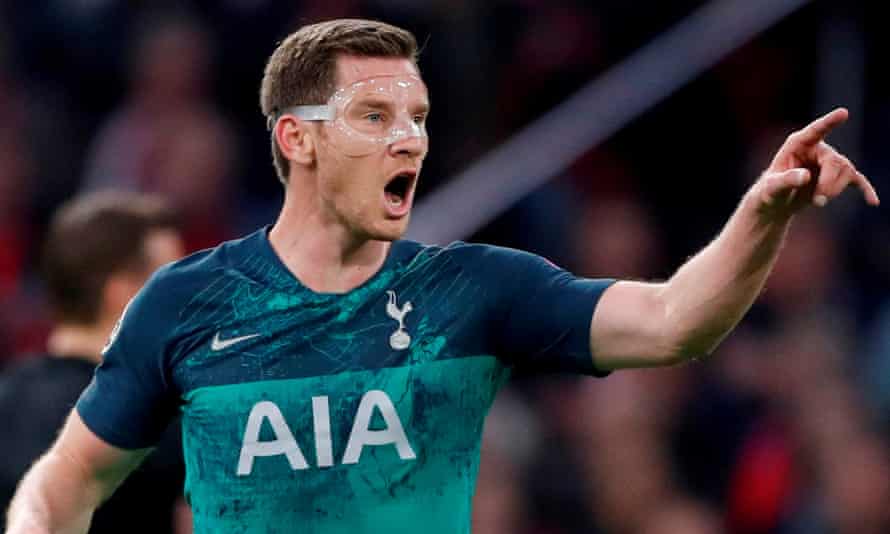
It was around the end of last year that people began to notice Jan Vertonghen was looking decidedly off the pace at Tottenham. He was slow off the mark, slow to the ball, slow to react. Occasionally entire passages of play seemed to pass him by. And so, naturally, as an underperforming player in a popular ball game, it felt only right that he should be subjected to the same pitch of ridicule and abuse as anyone else in his position.
I went back through social media during some of his poorer games last season and pulled out a few of the more representative comments from Spurs fans and others. “Legs gone.” “Sad, but hasn’t got a clue what day it is.” “Get this clown out of my club.” “Finished.” “Past it.” “Utter disgrace.” “Sell.” “Dead wood.” “Stealing a living.” “Happy if I never see him in the shirt again.”
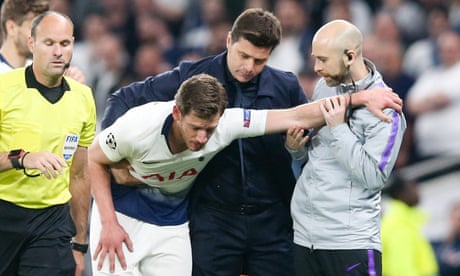
Jan Vertonghen reveals head blow led to nine months of dizziness and headaches
Well, now we know what was really going on. Last week Vertonghen revealed that for most of last season he was enduring the after-effects of a concussion sustained against Ajax the previous April. “I suffered a lot from dizziness and headaches,” said Vertonghen, now at Benfica. “It affected me for eight or nine months. I still had a year left on my contract, and thought I had to play because I had to showcase myself to other clubs.”
On Monday a working group led by the Premier League and featuring the Football Association, the EFL, Professional Footballers’ Association and Women’s Super League sat down to discuss whether there should be restrictions on heading the ball in adult football. It follows a 2019 study by the University of Glasgow that found professional footballers were three times more likely to die of neurodegenerative diseases than the rest of the population.
Meanwhile, the former England hooker Steve Thompson is one of a number of former players launching legal action against World Rugby, the Rugby Football Union and Welsh Rugby Union for an alleged failure to protect them from repeated head traumas.
Thompson is 42 and has been diagnosed with dementia. He no longer remembers winning the World Cup in 2003. “Was it a massive love of my life?” he said of rugby union in an interview with this newspaper two weeks ago. “No, not really. But it was a job.”
A question to consider as you scroll through all this: what does it make you feel? Sadness? Or sadness with a “but”? But: Vertonghen and Thompson knew what they were doing. But: they were handsomely paid for their trouble. But: you can’t ban heading in football, that’s just ridiculous.
But: any of us could get a traumatic brain injury simply by walking down the street and into the path of a falling piano. Life is risky. Sport is dangerous.
Perhaps this is a moment to consider what we owe the people risking their safety for our entertainment
There is a broad school of thought here that at its core, the debate over head injuries in elite sport – one that can easily be extended to other areas of player welfare – is simply a matter of personal choice. If athletes are prepared to embark on a career in professional sport, then as long as they do so fully apprised of the risks and in possession of the latest medical science, who are we to impede them?
Occasionally you will even see this idea expressed in terms of liberation, self-actualisation, even gratification: the notion that danger is not only part of the basic thrill of sport, but also the very point. That the essence of sport is bound up in sacrifice. That on some level we are all animalistically addicted to testing ourselves, pushing ourselves, breaking ourselves. Or at the very least, watching with a beer while others do.
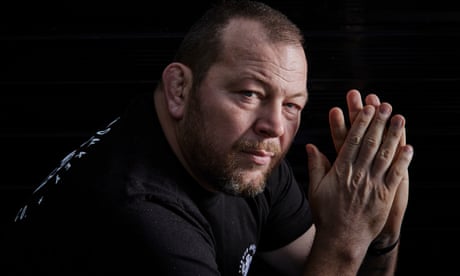
Steve Thompson: 'I can't remember winning the World Cup'
If we can no longer pay teenagers ridiculous money to give themselves brain damage for our gratification, then frankly are we even still free as a species? And ultimately, this is a question that cuts to the very core of what sport means, and who it serves. After all, choices are not made in a vacuum: they are influenced, impelled, incentivised.
Vertonghen played on because he felt his livelihood was on the line. Thompson played on because it was his job to do so. No scientific paper or well‑intentioned press release will ever override the profit motive. And so to focus on personal autonomy is to ignore the extent to which athletes, like all labour, are co-opted into an economy that they did not choose and over which they have little to no influence.
This is, of course, how sporting capitalism works: I get entertained, you get paid, and everything else is window dressing. Sporting capitalism simply buys off your fatigue, your mental health issues, your insecurities, your quality of life, your memory loss, your pain. If you tear a ligament, then it’s financially counterproductive for your club to make you play.
But a concussion? Well, we didn’t see anything, and obviously you can’t, so … how about we keep this one to ourselves? Partly this is a critique of a system that essentially regards the athlete as industrial plant: a part, a tool, a resource from which to extract performance value. But partly, too, this is a process in which we all participate. And for those of us who take pleasure from sport, perhaps this is a moment to consider what we owe the people risking their safety for our entertainment. To remember that welfare does not begin and end with a wage.
To bear in mind, above all, that within every superhuman athlete there is a human who bends and breaks like everyone else.
Tuesday 15 December 2020
Do rich countries undermine democracies in developing countries? Economic History in Small Doses 3
Free market policies have brought more areas of our life under the ‘one rupee one vote’ rule of the market. Let us examine some of these policies:
The argument is framed thus, “politics opens the door for perversion of market rationality; inefficient firms or farmers by lobbying their politicians for subsidies will impose costs on the rest of society that has to buy expensive domestic products.” The current farmers’ agitation in India is being tarried with this brush.
The free marketer’s solution is to ‘depoliticize’ the economy. They argue that the very scope of government activity should be reduced to a minimal state through privatisation and liberalisation. This is necessary, they argue, because the politicians are less competent and more corrupt. Hence, it is important for developing countries to sign up to international agreements like the WTO, bilateral/free trade agreements like RCEP or TPP so that domestic politicians lose their ability to take democratic decisions.
The main problem with this argument for depoliticization is the assumption that we definitely know the limits where politics should end and where economics should begin. This is a fundamental fallacy.
Markets are political constructs; the recognition of private ownership of property and other rights that underpin them have political origins. This becomes evident when viewed historically. For example: certain tribes have lived in the woods for centuries until the point when this land is sold off by the government to a private landowner and then these tribespeople now become trespassers on the same land. Or the re-designation of slaves from capital to labour was also a political act. In other words the political origins of economic rights can be seen in the fact that many of these rights that seem natural today were once hotly contested in the past.
Thus when free marketers propose de-politicizing the economy they argue that everybody else accept their demarcation between economics and politics. I agree with Ha Joon Chang when he argues that ‘depoliticization of policy decisions in a democratic polity means – let’s not mince our words – weakening democracy.’
In other words, democracy is acceptable to free-marketers only if it does not contradict their free market doctrine. They want democracy only if it is largely powerless. Deep down they believe that giving political power to those who do not have a stake in the free market system will result in an ‘irrational’ modification of property and other economic rights. And the free-marketers spread their gospel by subtly discrediting democratic politics without openly criticising democracy.
The consequences have been damaging in developing countries, where the free-marketers have been able to push through anti-democratic actions well beyond what would be acceptable in rich countries.
Monday 14 December 2020
Are Democracy and Capitalism in Conflict? Economic History in Small Doses 2
By Girish Menon*
The answer is yes. Unlike what a lot of people believe capitalism and democracy clash at a fundamental level.
Communists, who reject the ‘one dollar one vote’, were not known for their conduct of free and fair elections either.
* Adapted and simplified by the author from Ha Joon Chang's Bad Samaritans - The Guilty Secrets of Rich Nations & The Threat to Global Prosperity
Saturday 8 August 2020
Economics for Non Economists 4 - The Marriage of Debt and Profit in Capitalism
by Girish Menon (Adapted from: Talking to my Daughter about the Economy by Yanis Varoufakis)
How does a new
entrepreneur start?
---For earlier articles
Explaining GDP and Economic Growth
---
Positive Multiplier
As the economy grows, banks will lend even larger amounts of loans until it reaches a point when the loans they have made are so vast that the economy cannot keep pace. At this point realization dawns that the large loans will not be repaid and the economy crashes.
Debt, Profits and Crashes
Thus debt is indispensable in capitalism. There can be no profit without debt. However, the very same process that generates profits and wealth also generates financial crashes and economic crises.
Tuesday 21 July 2020
Ideology and the pandemic
THE niece was in school in the US when she saw Nadia Comaneci live on TV in the 1976 Montreal Olympics. In India, one could only dream of such pleasures although the kindly radio ensured we wouldn’t miss the cricket action at Old Trafford, Karachi or Kanpur thanks to John Arlott, Omar Qureishi and Bobby Talyarkhan weaving magic with the running commentary.
Coming back to Delhi the following year, the niece was greeted with fanfare reserved for people returning from a pilgrimage. She had seen the wondrous Nadia perform her fabled Perfect 10s on the beam and uneven bars. But, uncle, the schoolgirl moved quickly to alert me to a flaw in my eagerness. “Nadia is a communist.” And so? Didn’t we like the Romanian girl’s captivating smile? “Yes, but, you know, communists are trained how to smile.” Probing her reading list in school in America, out came the resolution to the puzzle. George Orwell’s Animal Farm had taken its toll.
The anti-communist primer had come up also for exams at our school in Lucknow, but somehow for most students it was water off a duck’s back. Indeed, the common man’s grip of political reality has remained at variance with, say, Ayub Khan’s, as the dictator turned his hatred of partisans into a bloody mess, or Nehru, who would abandon his fabled democratic instinct to dismiss the world’s first popularly elected Marxist government in Kerala over a disputed school curriculum.
When the Cold War was over, there was a sense of anticipation that the ‘free world’ would tone down the admixture of cretinism and propaganda, which it spewed for decades to describe a communist’s horns and canines. One thought the shrill imagery would give way to a sensible critique of many things that had gone wrong with communist systems.’
Within no time at all, however, the Cold War-era slogan for free democracies turned into an insidious prescription for ‘free-market democracies’. That should have been figured out as early as 1955 when popularly elected Mohammad Mosaddegh was overthrown in Iran by an American-British intelligence-led coup over the prime minister’s nationalisation of the oil industry.
One of the triggers for Orwell’s outburst against communism was his disenchantment with Stalin, though the British writer never reneged on his own commitment to socialism, provided it remained democratic. Much of Orwell’s anger deepened with his experience of the Spanish Civil War where he saw partisans turning on each other, aligning against Stalinists or supporting them.
As the world continued to see in the fable of Animal Farm the turning of an egalitarian dream into a nightmare, particularly for those that led the allegorical revolution, not much was said or discussed of Orwell’s ‘Man’ who symbolised the animals’ class enemy. It was Man in the form of the drunken farm owner, one Mr Jones and his perpetually snoring wife, whose untold cruelties set off the upheaval.
“Man is the only creature that consumes without producing,” the Old Major confided to the secret barn house meeting. The ageing pig was the intellectual fountainhead of the rebellion. “[Man] does not give milk, he does not lay eggs, he is too weak to pull the plough, he cannot run fast enough to catch rabbits. Yet he is lord of all the animals. He sets them to work, he gives back to them the bare minimum that will prevent them from starving, and the rest he keeps for himself. Our labour tills the soil, our dung fertilises it, and yet there is not one of us that owns more than his bare skin.”
Replace Man with Capitalism and it reads like a fine précis of the Communist Manifesto. This critique of capitalism in the very beginning of the book has been lobotomised from popular memory. The Covid-19 pandemic may have pushed it back centre stage again, nudging societies to rephrase their worldview. The millions we saw on the roads in the wake of the badly called lockdown in India were as much victims of a callous state as of a reality in which the rich are the privileged and the poor their grovelling minions.
That equation may have been jolted. The world’s four best friends are definitely in trouble. Benjamin Netanyahu has lost his popularity from 70 per cent approval ratings to around 15. The virus has ensnared Jair Bolsonaro in more ways than one. He has a rebellion brewing. Donald Trump is fighting everything and everyone except the virus. His lack of leadership, when it was most needed to save American lives, looks primed to cost him the election in November. Narendra Modi, according to The New York Times, has used the virus-related lockdown to arrest more critics, indicating he is on the back foot.
The Times mentions the case of Natasha Narwal, a student activist accused of rioting by the New Delhi police. When a judge ruled that she be freed for she was merely exercising her right to protest against a divisive citizenship law, the police slapped fresh charges of murder and terrorism, sending her back to jail.
Vijay Prashad’s Tricontinental: Institute for Social Research has been studying the way in which governments in places like Laos, Cuba, Venezuela and Vietnam — and one Indian state, Kerala — have tackled the coronavirus.
Both Laos and Vietnam border China, where the virus was first detected in late December 2019, and both have thriving trade and tourist relations with China. India is separated from China by the high Himalayas, while Brazil and the US have two oceans between themselves and Asia; nonetheless, it is the US, Brazil, and India that have shocking numbers of infections and fatalities. Asks Prashad: “What accounts for the ability of relatively poor countries like Laos and Vietnam to attempt to break the chain of this infection, while richer states — notably the United States of America — have floundered?” Orwell should have been around to figure that out.